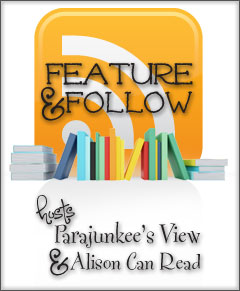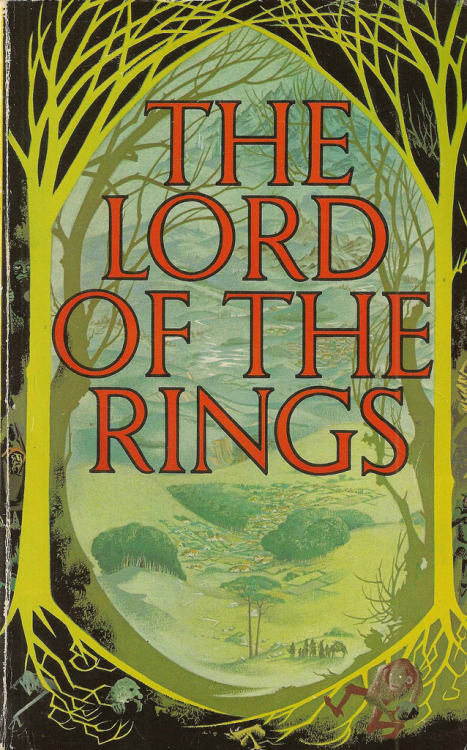I received a copy of
this book in exchange for a review with the Authors Requesting Reviews program
on Basically Books.
This book came recommended to me by Tana, the fabulous queen of the ARR
program. Although this is not a genre that I often dabble in, I found I was
actually feeling fairly excited about the prospect of the story and stepping
out of my comfort zone.
Information:
Title: Blue Sky Days
Author: Marie Landry
Publisher:
Self-published
Length: 207 pages
PoV: 1st
person
Tense: Past tense
Story: A year
after graduating from high school, nineteen-year-old Emma Ward feels lost. She
has spent most of her life trying to please her frigid, miserable mother -
studying hard, getting good grades, avoiding the whole teenage rebellion thing
- and now she feels she has no identity beyond that. Because she spent so many
years working hard and planning every moment of her life, she doesn't have any
friends, has never had a boyfriend, and basically doesn't know who she is or
what she really wants from life. Working two part-time jobs to save money for
college hasn't helped her make decisions about her future, so she decides it's
time for a change. She leaves home to live with her free-spirited, slightly
eccentric Aunt Daisy in a small town that makes Emma feel like she's stepped
back in time.
When Emma meets
Nicholas Shaw, everything changes - he's unlike anyone she's ever met before,
the kind of man she didn't even know existed in the 21st century. Carefree and
spirited like Daisy, Nicholas teaches Emma to appreciate life, the beauty
around her, and to just let go and live. Between Daisy and Nicholas, Emma feels
like she belongs somewhere for the first time in her life, and realizes that
you don't always need a plan - sometimes life steers you where you're meant to
be.
Life is wonderful,
an endless string of blue sky days, until Nicholas is diagnosed with cancer,
and life changes once again for Emma in ways she never thought possible. Now
it's time for her to help Nicholas the way he's helped her. Emma will have to
use her new-found strength, and discover along the way if love really is enough
to get you through.
Thoughts and impressions: I have to be honest as I start this review: I think
that this is one of the most difficult reviews that I have ever written. Even
in my own head I am very torn about this book. On the one hand, I did like the
story and the message that it conveys, but on the other hand it was lacking
something for me. But what, exactly, was it lacking? Well, I’m finding that I
can’t quite put my finger on that. I’m going to try to figure it out for myself
as I write this.
So what’s the book
about? The synopsis covers that extensively. Emma, having always lived in her
mother’s shadow as she strives for her approval, finally sets out to discover
life and what she wants from it. So
she goes to live with her aunt Daisy in the small town of Riverview and there
she embarks on a voyage of self-discovery. She soon meets Nicholas and her
voyage of self-discovery becomes the adventure of falling in love for the first
time. But her summer happiness is doomed when Nicholas is diagnosed with cancer
and Emma has to find new pillars of strength inside herself in order to be the
rock that Nicholas needs to help him weather this storm.
I much preferred the
second half of the story, but why? I think that the answer lies in the fact
that in the first half of Blue Sky Days
there is no threat in any form. There’s nothing hanging over their heads as the
reader knows that the cancer problem is coming, but the characters don’t. It’s
not even really the story of Emma and Nicholas falling in love as that happens
right off the bat. It’s more a chronicle of what they did together that summer.
There are two what I’m going to term “speeds”. Most of the time things were set
on “play” and the reader would experience events as Emma lived them. Other
times it was like things were on “fast forward” as Emma gave the lowdown on what
they’d been doing until we’re caught up with her present again.
Because there was no
threat to what was going on, to their happiness, I felt a bit like a voyeur
standing at a window and looking in on these people, which in turn left me ill
at ease. More than this, though, the physical interactions between the
characters left me uncomfortable. Now, I consider myself to be a fairly
touchy-feely person and I’m all about hugs and kisses (much to my boyfriend’s
ever-lasting frustration!), but these characters took touchy-feely to a whole
new level. They were constantly kissing each other on the cheek or forehead or
hugging even when it was the first time they’d met. This may be a culture
issue, I don’t know. Again, I just felt bordering on voyeuristic by the
intimacy of it all.
I didn’t really feel
the growing relationships between the characters at this point either. Daisy
and Emma already had a close relationship before the events of the book even
started; Maggie and Vince, Nicholas’s friends, didn’t really get much on-page
time and the reader just had to take Emma’s word for it when she mentioned that
they’d become friends during one of the fast forward passages; and I felt that
the scenes between Emma and Nicholas were more a way of chronicling the events
of the summer than really showing the evolution of their feelings as the
feelings just seemed to be there as of the get go.
It was interesting to
watch Emma come to find her own two feet with the help of these other
characters but I found that my discomfort during this half of the story was
often hard to overlook and the fact that for 50% of the book there was nothing
to threaten their happiness meant that I felt that they had nothing to lose.
Consequently, it was hard to stay interested at times.
The second half of the
book really picked up. I know that some readers were reduced to tears when
reading this half of the book as Nicholas has to fight leukaemia. Personally, I
didn’t cry but I suspect that this stems from my difficulties connecting with
the characters in the first half of the book.
Funnily enough this
part of the story reflects events that took place in my boyfriend’s family just
before I was drawn into the fold. We’re talking almost the exact same trials
and tribulations as Emma and Nicholas and the same mentality on coming out the
other side. It’s very true that such an experience leaves you with a very
different outlook on life. There were a good number of quotes in this part of
the book that really impacted me. The most important of these was something
that Daisy says to Emma when Emma’s feeling close to breaking point as things
go from bad to worse.
"You're going to give him all you have,
just like you've been doing, and when you don't think you've got anything left
to give you're going to dig deeper and somehow find more strength..." I loved this quote. It meant so much to me. I
wish I knew how to add quotes to GoodReads so I could add that one to my
favourites, alas I don’t.
This was a very
poignant insight into the horror that people – friends and family of cancer
sufferers – go through every day. I’ve been there, done that, got the t-shirt,
though my experience was diagnosed as terminal so there was never a point when
raised hopes were dashed as they are in the book. I think the most striking
scene for me was when Emma climbed into her car and just broke down, she felt
so powerless and that translated really well.
In fact, the
author’s ability to portray these feelings (as several of the characters end up
feeling like ships without anchors) was really admirable. She’s got great
talent for bringing such emotions to life for the reader. Had I connected with
the characters better, I’m sure that I too would have been reduced to a
blubbering mess.
Emma’s dad also
makes his appearance in the second half after having been more or less absent
for the first half of things. He’s supposedly breaking free from the chains
that shackle him to his selfish, unfeeling wife but most of this goes on
off-page so the reader doesn’t really get to observe his evolution. I would
have liked to have seen more or it. As it was it felt like it was a little too
much in the way of tying things up with that bow of perfection. It didn’t help
that I found the mother’s character very hard to believe. I just feel that had
she really been jealous that her only child chose to spend her time with her
aunt instead of her mother, the mother would have gone to lengths to get her
back rather than just keep pushing her farther and farther away at each point.
So I find that I’m
torn about this book. I think really this is in part my own fault as the reader
for not connecting very well with the book. When I look at it from a distance, I’m aware
that this book is worth at least 4 stars, but it just didn’t work that well for
me. I enjoyed it for the most part but I wasn’t invested in it.
The message, however, is perfect. May we all strive to make every day a blue sky day.
Style: I don’t know what it was exactly about the “fast
forward” passages that didn’t work for me, but they just didn’t work all that
well for me. That said, Georgette Heyer is one of my favourite authors and I
don’t like her “fast forward” passages either, so maybe it’s just this
particular style of recounting events. Other than that, the style was very
enjoyable and flowed well. For an indie book there were remarkably few issues
with the editing, so much respect is deserved there!
Final verdict: Though I realise that the book deserves a high
rating, it wasn’t a 4 or 5 star read for me. It wasn’t a bad read either. I’m
used to reading books where there’s a very definite threat throughout the book
and I think the lack of one here definitely affected my enjoyment of this one. 3
stars
Extra notes: Some bad language. Sex behind closed doors.














